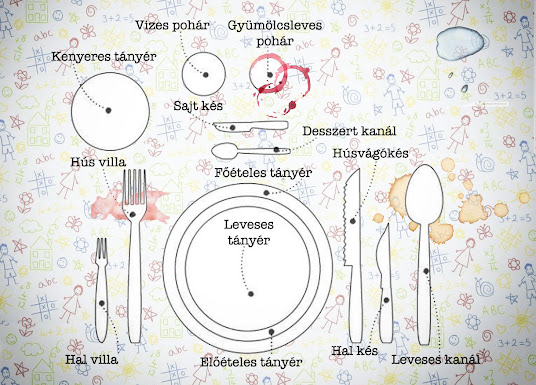Whose problem is 'daddy issues'?
An anecdote, by its dictionary definition, is a short prose piece ending with a punchline, belonging to the genre of short narrative forms based on its formal and structural characteristics. It always relates to existing historical figures, but the story itself is usually fictional. Take the case of Sigmund Freud and the cigar: during one of his university lectures, he was apparently discussing phallic symbols, while absent-mindedly pulling out a cigar and lighting it. The audience began to titter, and Freud allegedly retorted: "Gentlemen, remember, sometimes a cigar is just a cigar."
While this kind of humour wasn't far off the dry irony of psychoanalysis's founder, researchers at the Sigmund Freud Museum in London have found no evidence that the above line was ever uttered. It will probably also remain unclear how public discourse distilled the increasingly fashionable term "Daddy issues" from the Freudian 'father complex'. To find out how much and in what way this concept might affect us as fathers, it’s worth clearing up a few misunderstandings.
I don't think tabloid psychology is the devil's work; it plays a big role in popularising psychological knowledge. However, we often come across misunderstood, misinterpreted concepts and flawed conclusions, so choosing sources and clarifying vague phrases is becoming increasingly important. As one of our declining cultural assets, populism has also discovered the father complex, and in pop psychology, this morphed into the phrase 'daddy issues'. Although the Austrian neurologist saw one of psychology's goals as demystifying the mysteries lurking in the shadow of the psyche, and tried to banish these "ghostly phenomena," through cultural pathologising we always seem to think we know the real reasons.
As a definition, 'daddy issues' doesn't appear in the Diagnostic and Statistical Manual of Mental Disorders (DSM-5); psychology doesn't use this definition. And when Freud tried to portray our 'malaise' in culture as an anthropological given, he might just have been right, because our trite reasoning and generalisations repeatedly obscure the possibility of a deeper understanding of problems, all while we might mutter our diagnoses as vitriolic comments. For instance, if a woman's too reluctant to get into bed, or not at all, or constantly craves reassurance about her 'bed-acrobatics', then it's down to her dad. But the label also sticks if she's attracted to older men, or if she calls her partner "Daddy," and we all 'know' why: she didn't have a father, or if she did, there wasn't an intimate, trusting relationship between them.
Well, the problem is more complex, more multifaceted, and it's not just women, but men too, who can suffer from a father complex. Freud's starting point was that the key to understanding adults lies in childhood, because early childhood influences fundamentally determine the process of personality development. He divided childhood into different psychosexual stages, associating them with certain body parts at specific ages. These stages were named according to where the libido (sexual energy) was discharged, thus speaking of oral and anal stages, followed by the phallic stage.
This latter period – which might first present a serious challenge to us fathers – can vary in intensity and generally lasts from about three years old until school age. According to him, the most important outcome of this period is identification, meaning alignment, which happens between the boy and the father, and the primary goal of the process is for the child to develop a mature sexual role and identity. The child clings almost lovingly to the mother, while harbouring negative feelings towards the father. Freud named this emotional crisis the Oedipal conflict, originating from Greek mythology; its female equivalent, via Jung, is the Electra complex. If the child successfully navigates this stage, they will be able to detach from their parents and become independent as adults, but if a woman or man gets stuck in the Electra or Oedipus stage, i.e., the complex doesn't resolve by the end of the developmental stage, they will remain tied to their opposite-sex parent. The boy will show strong resistance towards the father, while the girl develops a particularly tender and dependent relationship with the mother and becomes "Daddy's girl."
Many experts partly or wholly question this theory, criticising the sexual approach, and whether personality development can be considered concluded upon reaching adulthood. However, Freud's findings regarding the Oedipal period seem difficult to bypass even today. It's human nature to seek connections, to seek love, support, and solace in others, and since no two people have the same experience with their parents, parental issues can affect anyone carrying resulting emotional wounds. Attachment itself always develops from the typically everyday relationship between an infant and their caregiver, becoming characteristic of that particular bond and becoming formative throughout our lives when we form new relationships.
Beyond parental connection, several other factors can also play a role in its development over which a parent has no or limited influence, such as the child's temperament. John Bowlby, the English psychiatrist, starting from psychoanalysis, formulated his theory, to which Mary Ainsworth contributed with her method for measuring mother-infant attachment, creating attachment theory.
Ainsworth and colleagues (1978) described three different patterns based on children's behaviour in stressful situations, leading to children being securely attached, insecure-avoidant, or insecure-ambivalent. Main and Solomon (1990) added a disorganised attachment pattern. However, an individual doesn't necessarily belong 100% to a single category: it's possible they don't exactly fit the "profile."
Secure attachment style generally develops when a child's needs were readily met by their caregiver, thus allowing them to openly express their emotions. Adults with a secure attachment style can rely on their partners and allow their partners to rely on them.
Anxious-avoidant. People with this attachment style may feel anxious, crave closeness, but feel insecure that their partner will abandon them.
Insecure-ambivalent. People of this type may have difficulty trusting others because they fear being hurt.
Disorganised. People of this type may be uncertain about intimacy and tend to flee from experiencing difficult emotions.
From here, the story goes two ways, because we can ponder whether there are recurring patterns in our relationships. And if the answer is yes, then also why we keep ending up in the same situations with different people? Alongside starting to work on ourselves, it's worth considering what patterns we are creating in our children?
Ainsworth and colleagues (1978) concluded that parental sensitivity (responsiveness to the young child's emotional states) greatly influences a child's attachment behaviour. It's important for the infant to experience that their needs are acknowledged and met, and that the parent provides emotional warmth, tenderness, and comfort in times of distress. The parent is physically and emotionally available to them, identifies the cause of their distress, and remedies it. Our attachment patterns also show what emotion regulation strategies we can use: whether we amplify or suppress our emotions.
Even if we have stable relationships, there might be patterns in our behaviour that constantly annoy us, or continuously make us stressed or unhappy. If we feel our attachment is damaged, it's worth actively addressing the problem and seeking help, because by doing so, we're not just helping ourselves, but our children too! These small patterns, little actions, are important, because they are not as insignificant as many people, in Freud's words, "in a sort of quiet conspiracy" would be ready to assume. They always carry a meaning that can be easily and certainly interpreted from the situation in which they occurred. A person's innermost secrets can be regularly betrayed with their help.
This thought also leads to the conclusion of why the above anecdote contradicts one of psychoanalysis's important fundamental tenets, i.e., why Freud could not have said that a cigar is sometimes just a cigar. Of course, according to anecdotal logic, the punchline of the story arises from a juxtaposition, where viewpoints and meanings are set against each other, and this is the source of the joke's psychological effect. From this, no other conclusion can follow than that, according to psychoanalysis, a cigar is never just a cigar.










